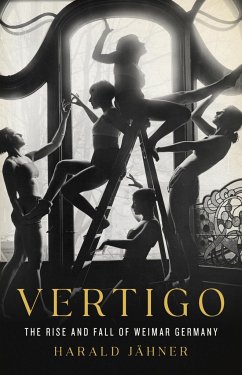"The dramatic and consequential history of Germany's short-lived experiment with democracy between the world wars, when vibrant cultural experimentation collided with political and economic turmoil. Out of the ashes of the First World War, Germany launched an unprecedented political project: its first democratic government. The Weimar Republic, named for the city where it was established, endured for only fifteen years before it was toppled by the insurgent Nazi Party in 1933. In Vertigo, prizewinning historian Harald Jähner tells the Republic's full story, capturing a nation caught in a whirlwind of uncertainty and struggling toward a better future. In the aftermath of World War I, Germany was buffeted by political partisanship, economic upheaval, and the constant threat of revolutionary violence. At the same time, many Germans embraced newly liberated lifestyles. They flouted gender norms, flooded racetracks and dance halls, and fostered a vibrant avant-garde that encompassed groundbreaking artists like filmmaker Fritz Lang, painter Wassily Kandinsky, and architect Walter Gropius. But this new Germany sparked a reactionary backlash that led to the Republic's fall to the Nazis and, ultimately, the conflagration of World War II."--
Hinweis: Dieser Artikel kann nur an eine deutsche Lieferadresse ausgeliefert werden.
Hinweis: Dieser Artikel kann nur an eine deutsche Lieferadresse ausgeliefert werden.
The Weimar Republic is a byword for hedonism and excess. A new history captures the mood with gusto ... For obvious reasons most histories of the Weimar years are dominated by politics, with Hitler and his cronies lurking ominously on the margins. But Jähner's account is more unconventional, more surprising and, frankly, more enjoyable ... I enjoyed it enormously. Dominic Sandbrook, Sunday Times








